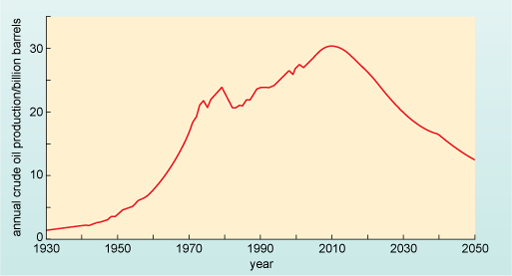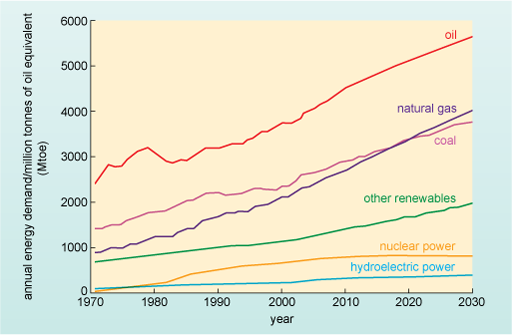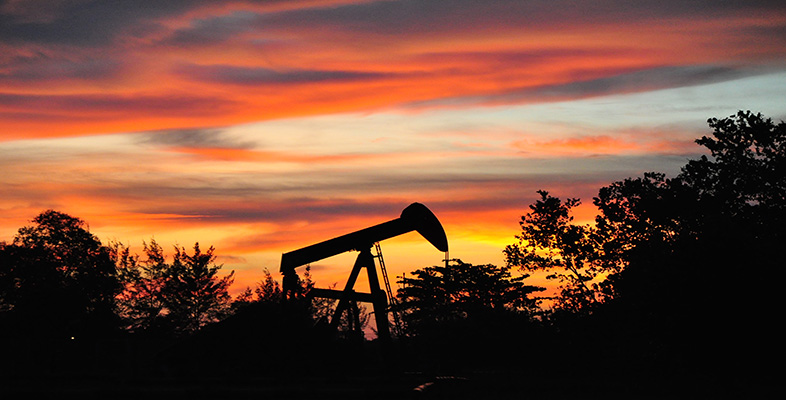5 Is the oil running out?
We usually find oil in new places with old ideas. Sometimes, also, we find oil in an old place with a new idea, but we seldom find oil in an old place with an old idea. Several times in the past we thought we were running out of oil whereas we were only running out of ideas.
We are now entering the second half of the Oil Age, and face the relentless decline of production, imposed by nature.
Oil is one of a number of fossil fuels - fuels derived from the fossilised remains of living things. The two other most abundant fossil fuels are natural gas and coal.
The supplies of all fossil fuels are finite and (in theory) if we keep using them, they will eventually run out. The imminent exhaustion of oil supplies has been predicted a number of times in the last 100 years. In 1919 the head of the prestigious US Geological Survey predicted that the United States would run out of oil within nine years. Almost 100 years later, oil is still being extracted in the US. Discoveries of new oilfields and more efficient extraction techniques have so far kept the oil flowing, though the quantity of oil produced has declined.
There is no question that at some point the oil will run out, but this is unlikely to happen in our lifetimes or even our children's lifetimes. However, when the oil wells run dry is not the key question - or at least not the one likely to affect our or the next generation. Instead, the key question is whether we can produce enough oil to satisfy global demand. Consider Figure 6, produced in 2003 by members of the campaigning organisation the Association for the Study of Peak Oil. The figure shows an estimate of the global production of oil over a 120-year period.

Describe the overall shape of the graph in Figure 6.
The graph shows global production of oil rising to a peak at around 2010 and thereafter the production seems set to decline. The peak oil production is approximately 30 billion barrels per year.
Question 3
(a) Using information from Section 1 and Figure 6, calculate the oil production (in tonnes) for 2010, assuming production reached the peak predicted by the Association for the Study of Peak Oil.
(b) Now use Figure 7 to estimate the demand for oil in 2010. According to this data, does supply exceed or meet demand? Comment on the likely future trend in supply and demand for crude oil, if this data is correct.
Answer
(a) According to Figure 6, the production of oil peaked at around 30 billion barrels (30 000 million barrels) in 2010. This can be converted into millions of tonnes of oil as follows:
peak annual oil production in million tonnes
= 30 000 million barrels × 0.14 tonnes per barrel
= 4200 million tonnes per year
(b) From Figure 7, in 2010 the demand for crude oil can be estimated as approximately 4400 million tonnes. So if this data is correct, demand for oil is approximately balanced by its production; but according to the two graphs, demand may very soon exceed supply.

The idea that we are already at, or about to hit, 'peak oil' is a highly disputed one - and heated arguments have taken place about the validity of the ideas behind Figure 6. The debate can take at least two forms. Put crudely, the first form of the debate is between the geologists and the economists. Geologists point to the declining rate of discovery of new oilfields and the inevitable decline in resources. Economists claim that shortages of oil will raise prices - spurring technological development and the exploitation of sources of oil previously considered uneconomic. A second form of the debate occurs between different geologists - over exactly when the peak in oil production is likely to occur.
